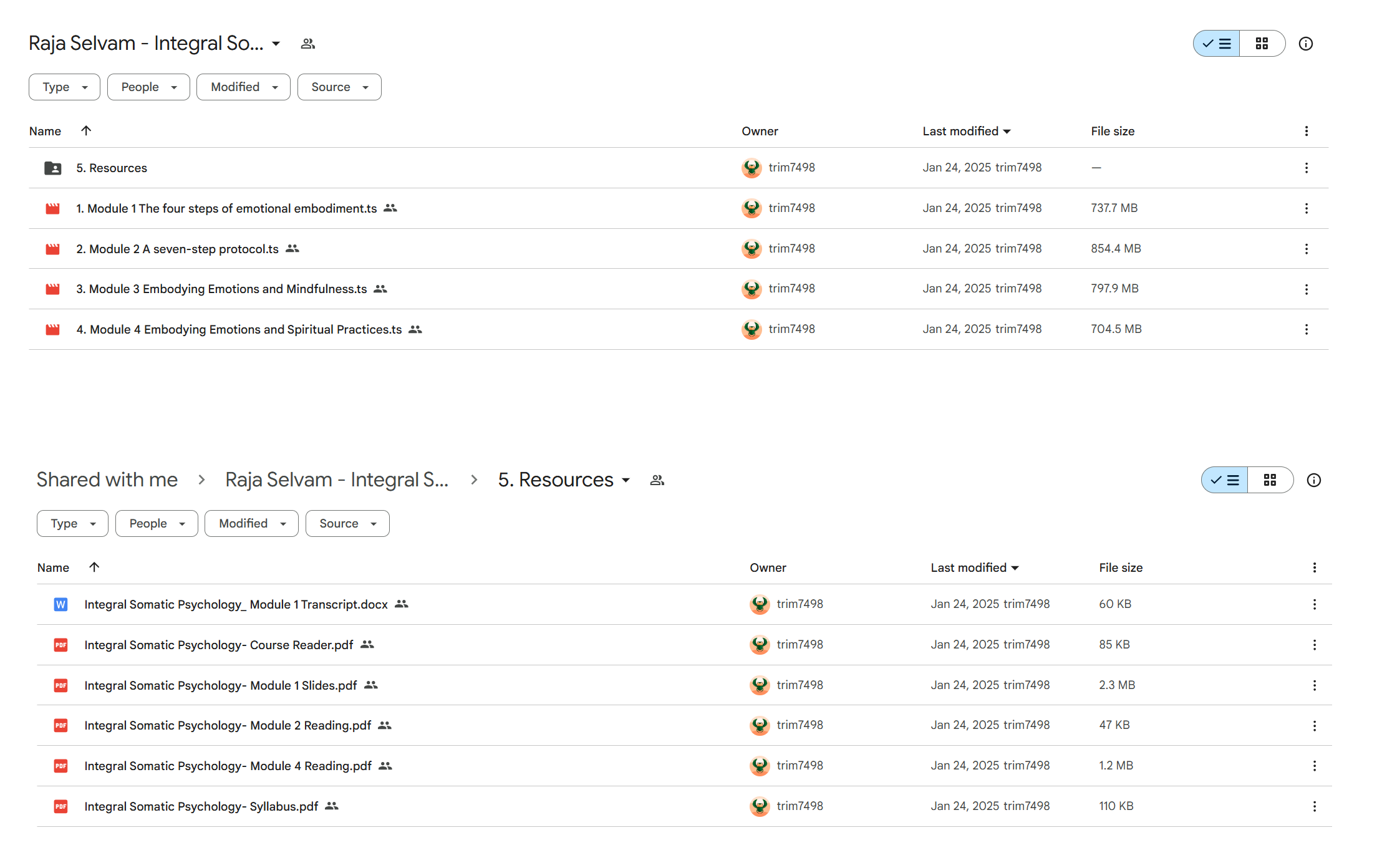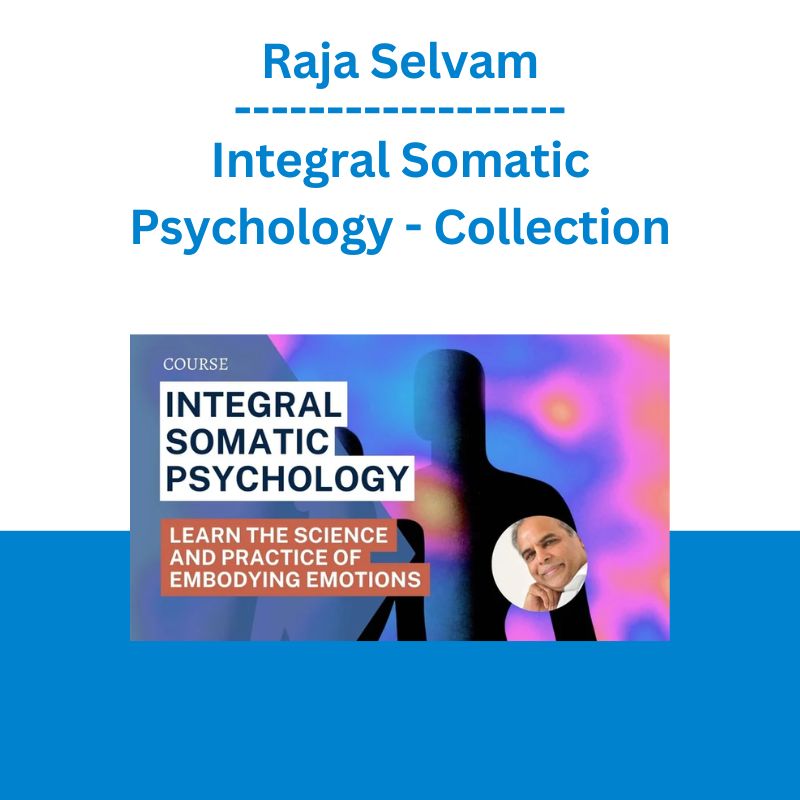*** Proof of Product ***

Exploring the Essential Features of “Raja Selvam – Integral Somatic Psychology – Collection”
About
In this four-week course, we will learn the science behind the practice of embodying emotions. We’ll learn how to go about the practice of embodying emotions in four simple steps. We will learn how to implement a seven-step protocol to use when we run into a very limited capacity for emotional suffering. In the fourth and final module, we will look at the comprehensive model of the psyche from Integral Somatic Psychology (ISP) and see how the building of capacity to tolerate opposites in human experience through the practice of embodying emotions can improve our diverse spiritual practices.
Every module will have guided exercises to have participants experience the practice of embodying emotions and their various benefits firsthand. The course will also expand the definition of emotion and the range of emotions so that participants can quickly find an emotion to work within every situation they face.
Module 1: The four steps of emotional embodiment
In the first module, we will learn the science as well as the benefits of the practice of embodying emotions. Specifically, we will learn about the new scientific paradigm of embodied cognition, emotion, and behavior. We will also learn how to break down the practice into four easily implementable steps, situation, emotion, expansion and regulation, and integration; and have a personal experience of the four steps through a guided experiential exercise.
Module 2: A seven-step protocol when the capacity for emotional suffering is very limited
In the second module, we will learn about different kinds of emotions including the always-present but often-overlooked sensorimotor emotions, so as to quickly and easily find emotions to work with quickly in every situation. Also, we will learn how to implement a seven-step protocol to use when we run into a very limited capacity for emotional suffering; and have a personal experience of the seven-step protocol for embodying emotions through a guided experiential exercise.
Module 3: Embodying Emotions and Mindfulness
In this module, we will learn how to improve outcomes in mindfulness practices, especially body-based mindfulness practices through the practice of embodying emotions; and have a personal experience of the potential for improving mindfulness practices emotions through a guided experiential exercise.
Module 4: Embodying Emotions and Spiritual Practices
In the fourth and final module, we will look at the comprehensive model of the psyche from Integral Somatic Psychology (ISP) and see how the building of capacity to tolerate opposites in human experience through the practice of embodying emotions can improve our diverse spiritual practices. In particular, how it can improve discrimination and differentiation of levels of experience, sense of self, and pure awareness, a practice that is often involved on the path of non-duality or enlightenment; and have a personal experience of the potential for improving discrimination and differentiation of levels of experience, sense of self, and pure awareness in the practice of non-duality.
Participants in this course will learn:
How the practice of embodying emotions can increase the capacity for tolerating opposites in emotional experience.
How the practice of embodying emotions can improve cognitive, emotional, and behavioral outcomes and shorten treatment times in all therapy modalities and in life.
How the practice of embodying emotion can improve physical and energetic wellbeing.
At least two examples of the always-present and often-overlooked sensorimotor emotions
How the ability to tolerate opposites in human emotional experience can further improve the practice of mindfulness
How the practice of embodying emotions can improve the level of development on any spiritual path including the pursuit of enlightenment or non-duality.
Author
Raja Selvam
Raja Selvam, Ph.D., is the developer of Integral Somatic Psychology (ISP), an approach based on the science of embodied cognition, emotion, and behavior in cognitive and affective neuroscience. He is a licensed clinical psychologist and a senior trainer in Dr. Peter Levine’s Somatic Experiencing program. Dr. Selvam has taught for 25 years in the Americas, Europe, Asia, the Middle East, and the Far East. His work is influenced by psychoanalytic approaches, Jungian psychology, body psychotherapy systems, bodywork and energy work schools, yoga, quantum physics, and Advaita Vedanta. Selvam’s publications include the 2013 “Jung and Consciousness,” published in Spring.
Please see the full list of alternative group-buy courses available here: https://lunacourse.com/shop/









